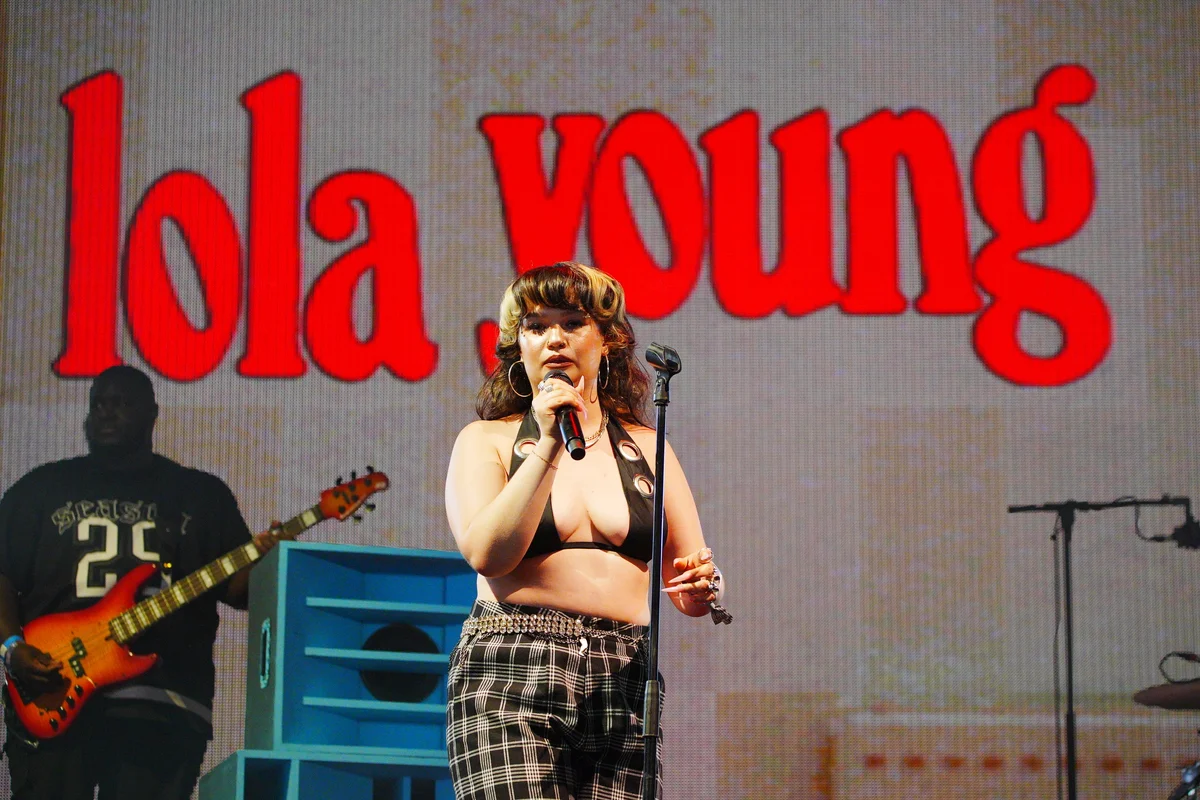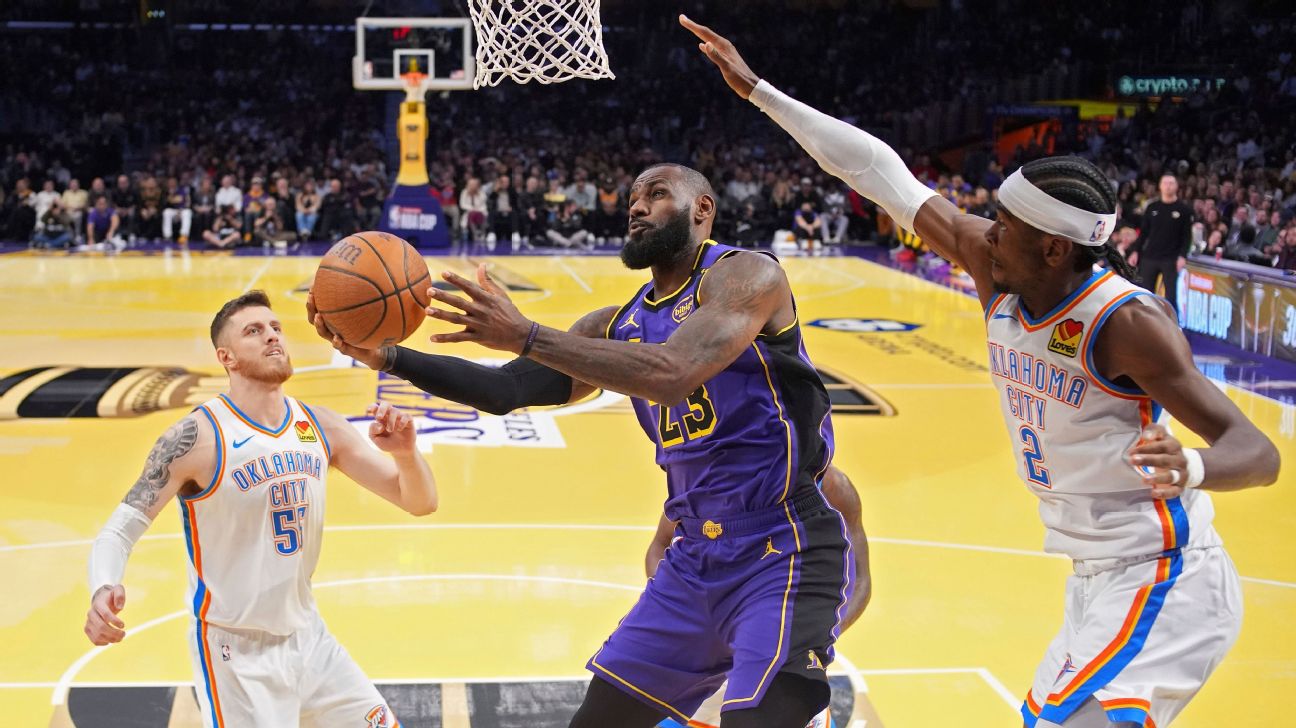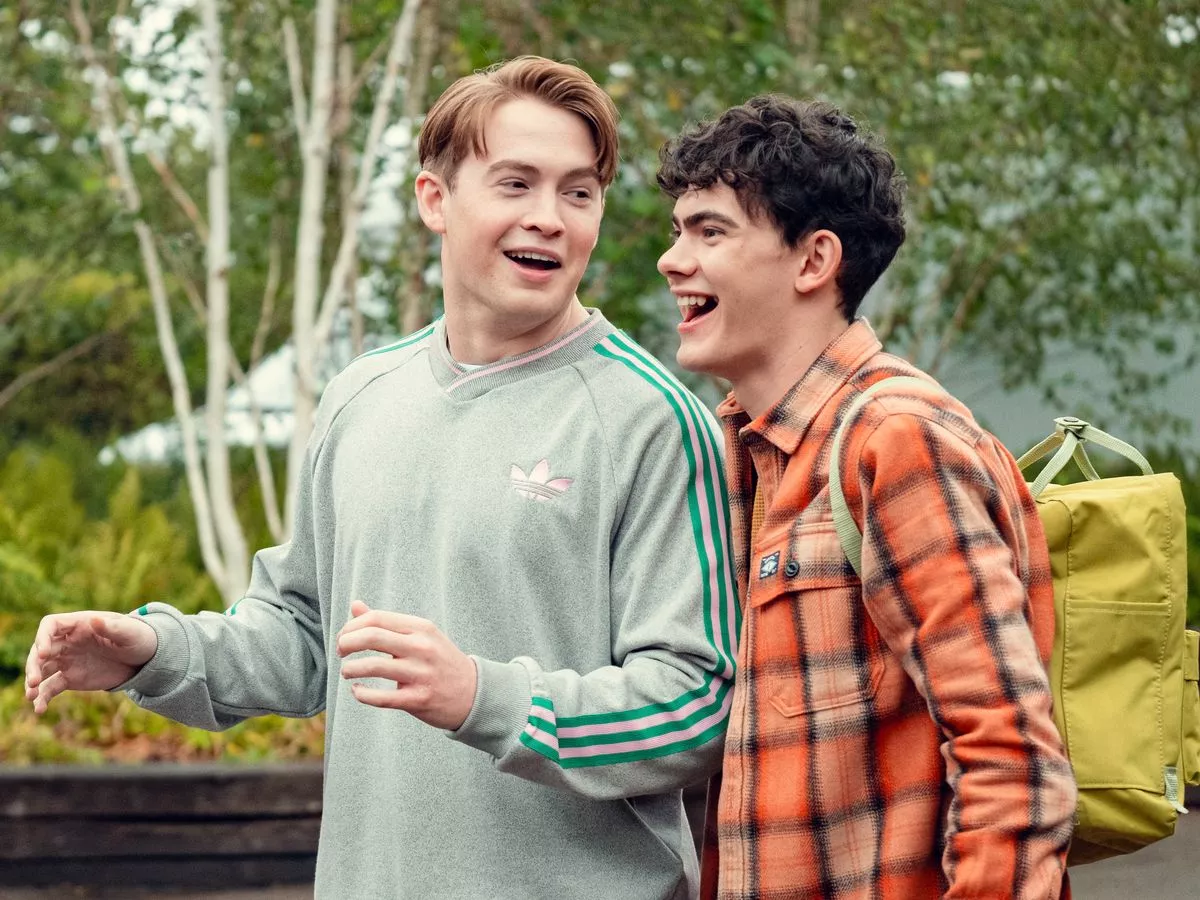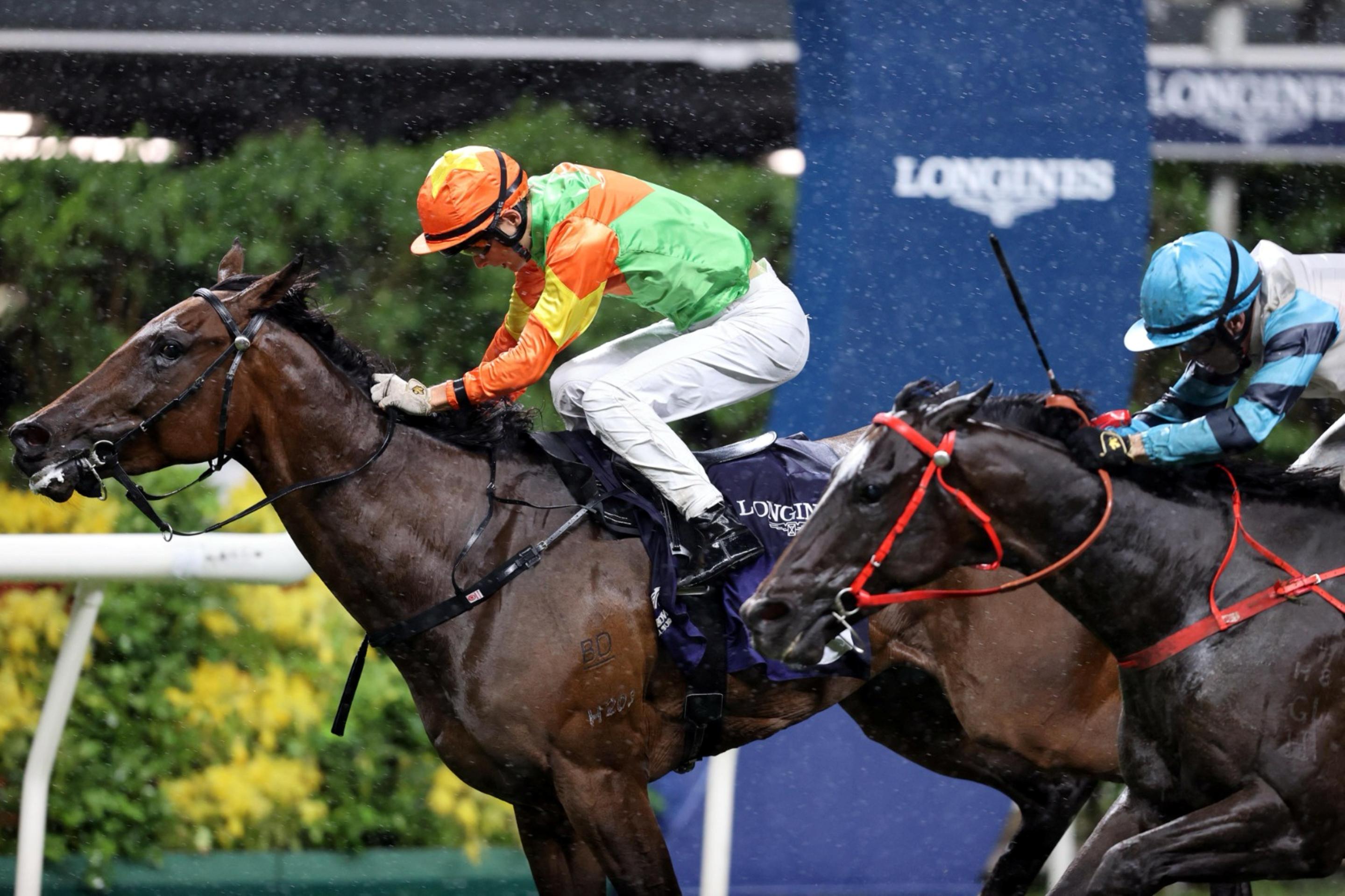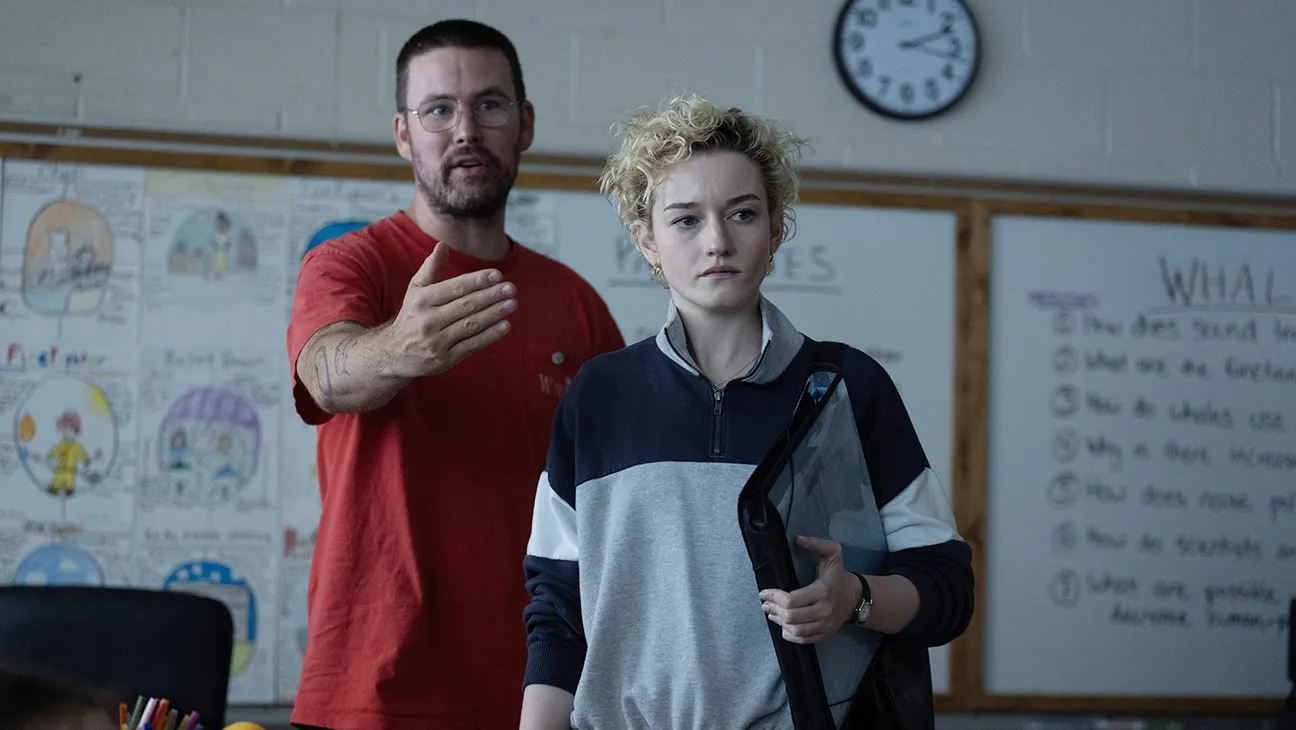
[This story contains spoilers for Weapons.]
Zach Cregger was far from home throughout Weapons’ storybook run this past summer. The writer-director was 6,000 miles away in Prague, prepping his next film, Resident Evil, which found itself in a hard-fought bidding war just like Weapons did in 2023. When the dust settled on New Line/Warners’ $38 million purchase of the latter, the betterment of its highly in-demand script was only just beginning.
A reference to a tray of hot dogs and assorted junk food became a tray of seven hot dogs, which served as a touching, esoteric tribute to Cregger’s late dear friend and longtime The Whitest Kids U’ Know collaborator, Trevor Moore. The mere act of writing Weapons began as a way for Cregger to process Moore’s August 2021 death.
Other improvements were made such as a scene in which Josh Brolin’s Archer takes ownership of his grief-stricken blunders at one of his company’s construction sites. Originally, the script had him lash out at his foreman for mistakes made by their crew. Character names were also changed so there weren’t at least four people with capital-A first names.
But perhaps the most consequential revisions happened during Alex Lilly’s (Cary Christopher) chapter of the nonlinear narrative. The young boy was the only third grader in Justine Gandy’s (Julia Garner) class to not run away from home in the wee hours of the morning before a school day, and it’s eventually revealed that he contributed to the disappearance of his 17 fellow classmates. But this wasn’t always the case.
When Alex’s mysterious Great Aunt Gladys (Amy Madigan) comes to stay with him and his parents under the pretext of her deteriorating health, he returns home from school one day to find his parents in a catatonic state. Gladys is actually an ailing witch who cast a spell in order to drain them of their life force and reinvigorate herself in the process. However, Gladys’ recovery is short-lived. So she asks Alex to retrieve personal effects from his 17 classmates, and Alex, not realizing the full extent of Gladys’ forthcoming design, agrees to help based on her promise that she’ll leave him and his parents alone afterwards.
In early versions of the script, Alex actually played no part in Gladys’ second spell that brought the 17 schoolkids to his doorstep so that Gladys could try once more to fully recuperate. Instead of stealing cubby-hole box name tags from his classroom, Alex received Valentine’s Day cards from each one of his classmates. Gladys then pocketed those items in the middle of night to cast the fateful spell.
Cregger later received a note from one of his friends that suggested the idea of directly involving Alex in Gladys’ spell. Thus, having Alex snatch the name tags not only made him more active in hopefully rescuing his parents, but it also reinforced his rationale for not telling the truth to law enforcement.
“Bill Hader is a buddy of mine. We would talk about the script, and I think it was his idea. He was like, ‘You should figure out a way to implicate [Alex] so he feels implicated.’ So it was through a conversation with him that I had the idea of Alex stealing something [for Gladys],” Cregger tells The Hollywood Reporter. “It was a way to give him some culpability so that we could further believe that maybe he wouldn’t tell [the authorities], because he felt like he was responsible and just as guilty [as Gladys], even though we know he wasn’t. But, to a degree, he is guilty.”
Below, during a recent spoiler conversation with THR, Cregger also discusses the practical reason for why he did away with Alex’s Valentine’s Day cards, as well as the current status of his Aunt Gladys prequel.
***
Weapons receivedrave reviews and was the number-one movie in August, grossing $264 million against $38 million overall. Its script was a part of a hotly contested bidding war that may have altered a couple careers. [Editor’s Note: Jordan Peele reportedly parted ways with his managers after losing the Weapons sweepstakes.] Your follow-up, Resident Evil,also had its ownbidding war. How does it feel to be the belle of the ball right now?
(Laughs.) I’m in Prague, and I’ve been in Prague since before Weapons came out, so I don’t feel like the belle of the ball. I feel like a stranger in a strange land, and I’m so happy to be here. I get to work every day toward making a movie [Resident Evil], so it’s awesome. But I haven’t had any experiences where I walk into a restaurant and somebody says, “Hey, there’s the guy who made [Weapons].” So maybe this is the best place for me to be so that my head isn’t exploding or whatever I’m trying to say. It’s just good to be in the Czech Republic.
Right after Weapons came out, my YouTube algorithm sent me down a rabbit hole of Newsboyz episodes, and it didn’t take long for me to see why the loss of Trevor Moore prompted you to write Weapons as a way to cope. I wasn’t privy to your Whitest KidsU’ Know collaboration. It somehow never entered my orbit. Anyway, was Trevor aware of these solo ambitions you had for yourself? Did he know you were trying to reinvent your filmmaking career? [Writer’s Note: Cregger and Moore co-directed a couple films in 2009 and 2011. Newsboyz was also a pandemic-era live stream that they co-hosted on YouTube/Twitch. They discussed the week in news and swapped entertaining stories from their lives. Their final episode took place a handful of hours before Moore’s tragic accident.]
Well, I shot Barbarian before he died, and he died while I was in the edit of Barbarian. So he knew I was making a movie, and I think he knew I always wanted to be a [solo] filmmaker. Yeah, he definitely knew that, but he didn’t know much about Barbarian. He was going to see it when it was ready, but he never got to. So I don’t really know how much he understood about what I wanted to do solo, but I don’t think that’s significant. It’s not something I talked about all the time.
The internet decoded that the platter of seven hot dogs was a nod to Trevor and the Whitest Kids sketch, “Hot Dog Timmy.” The draft of the script I read referenced hot dogs, but it didn’t say how many hot dogs were assembled. So did you come up with that specific tribute of seven hot dogs closer to filming?
Yeah, when we were putting it together, it was like, “What should be on the tray?” We then arranged the tray, and it was definitely thought out weeks in advance with the props people. So it was somewhere between the script and rolling camera.
When Josh Brolin’s character’s son, Matthew, is revealed to be Alex’s bully, I thought you were paving the way for the entire class to laugh at Alex for something Matthew instigated. Gladys would’ve then offered Alex a means of revenge without him fully understanding how extreme her intentions were.
That’s interesting.
Did you ever go down that bullying path?
No, I didn’t, but it makes a lot of sense. It just never occurred to me. That totally tracks.
In the earlier script, Gladys casts the 2:17 AM spell using Valentine’s Day cards that Alex’s classmates gave him, only he didn’t supply them to her. She just took them from him in the middle of the night.
Right.
Was the method of having him remove the name tags from the cubby-hole boxes a way to make him more active in potentially saving his family?
It was, yeah. It was also a way to give him some culpability so that we could further believe that maybe he wouldn’t tell [the authorities], because he felt like he was responsible and just as guilty [as Gladys], even though we know he wasn’t. But, to a degree, he is guilty. He probably had an inkling of an idea that whatever Gladys was going to do was probably pretty bad, and I don’t think he let himself imagine what was really coming. But, yes, it was to dirty his hands.
Compared to Valentine’s Day cards, were the cubby-hole box name tags just a cleaner, more streamlined way for Alex to get personal objects to Gladys?
It felt like the montage that would be necessary for him to get one little thing from every kid would be unbelievable and boring. The Valentine’s Day cards felt like a quick cheat. I was talking to a teacher friend of mine, and I was like, “Well, how could a kid come home with something from every other kid?” And she was like, “Valentine’s Day.” And I was like, “Brilliant!” However, we were shooting in the dead of summer, and the movie would never look like February. So that’s why I was like, “I’ve got to think of something else.”
Bill Hader is a buddy of mine. We would talk about the script, and I think it was his idea. He was like, “You should figure out a way to implicate [Alex] so he feels implicated.” So it was through a conversation with him that I had the idea of Alex stealing something. And when we were scouting on location, I saw these cubby boxes that were in a real classroom. So I was like, “That would do it.”
Two of my THR colleagues broke the potential Gladys prequel story. What’s your temperature on that idea at the moment?
I had the idea for this Gladys story before Weapons came out, so I was secretly hoping Weapons would work. I was like, “If it works, I have this other really fun story to tell about Gladys.” So I was like, “Please let it be a hit,” because I didn’t want to go to the studio [about it] unless Weapons did business. So it was one of those things where I already had it, and I wasn’t just like, “How can I cash in?” I was like, “Please God, let me be able to go do this again.” So we’re talking now, and while I can’t say too much obviously, it’s real and I’m pumped. I think it’s great.
I was surprised to hear that, because, when we spoke for Barbarian, you weren’t too interested in a prequel, especially one about your antagonist Frank (Richard Brake). But I suppose Gladys’ showmanship is a bit more fun to be around.
Frank’s whole world is disgusting, and having already told a story in that world, I don’t necessarily enjoy the aspects of Barbarian that are about women in captivity. That was just more of an interesting kind of backstory and plot device. With Gladys, I feel like there’s a whole rainbow of things that Gladys gets to interact with and participate in, so they’re very different things.
You opted not to explain the meaning of Weapons during your press tour, and I don’t blame you. These are fraught times. Thus, I’m going to subject you to my own reading of the movie.
(Cregger smiles.) Okay.
To me, the movie’s most enduring image is the schoolkids chasing after the old witch, and I interpreted that as the younger generations finally turning the tables on the older generations for passing on all their trauma and imposing harmful policies/legislation time and time again.
I love it.
I’ll take the compliment.
It’s great.
You deleted a scene where Alden Ehrenreich’s character, Paul, visits the doctor after his prickly run-in with the homeless addict, James (Austin Abrams). Did you ever decide what the result of Paul’s blood test would’ve been?
Oh, great question. No, I didn’t. But that’s such a good thing to think about. I thought that the not knowing was just as damning of his character as if he did have a result. The fact that he was willing to just play Russian roulette with [Julia Garner’s Justine] and her biology [via fornication] is heavy-duty. So I didn’t think we really needed an answer. He did it anyways, and that’s pretty fucked-up.
Austin Abrams was the one main actor who stayed on the film after its strike-related cast reshuffling. He didn’t go off and shoot something else. How much did that loyal gesture factor into him leading Resident Evil?
I didn’t reward him for his loyalty; I rewarded him for being a spectacular actor. I cast him in Resident Evil because he’s so well-suited for this part. We just had a completely amazing experience together [on Weapons], and we really connected, creatively. So when it was time to get this one going, I didn’t have to think too hard. If he wasn’t in Weapons, if he’d bailed and gone and done another movie, yeah, I probably wouldn’t have been doing [Resident Evil] with him. So I guess it’s a karmic reward, but it wasn’t like I was thinking that way.
Are you about to roll camera on Resident?
We’re going to start shooting the second week of October.
Is the biggest screenwriting lesson from Weapons to not name four characters with the same first letter? You originally had Archer (Josh Brolin), Alex (Cary Christopher), Anthony (who became Abrams’ James) and Andrew (who became Benedict Wong’s Marcus).
(Laughs.) Yeah, I think there could have been even another. Dude, that is only evidence of how stupid I am when I’m writing. I try to turn my brain off. I try not to think. I try to just go, go, go, go. So I make idiotic mistakes like that, and that’s what happens.
Earlier, when I listed your recent achievements, I forgot to mention Companion, which counted you as a producer. Drew Hancock told me the whole story of how it was originally going to be your Barbarian follow-up until you offered him the directorial job instead. He then surprised you with his brief indecision. Were you trying to pay it forward in the same way people did for you on Barbarian?
It was a combination of things. I was seriously considering directing it, but I felt like I should do an original next. That just became clear to me. As great as that script was and as excited as I was about it, I felt like I should do an original. And I could just tell from my conversations with Drew that he had a point of view and that he understood the story at the atomic level. He’d also directed [TV] before, so I was just like, “Why not, man? I think he can do it.” He just smelled like a [movie] director.
So before I offered him that, I called all the producers and was like, “I think Drew should direct it. Do I have your blessing to broach this with him?” And everyone was down. I thought he was going to do cartwheels on the phone with me when I said it, and I was genuinely surprised by his reaction, which was like, “I don’t know. I’ve got to think about this.” And I was like, “Well, why don’t you call me back tomorrow and tell me.” (Laughs.) I was like, “Weird.”
I think it took him two days to call me back, but that’s a testimony to how thoughtful Drew is. He respected the, dare I say, enormity of the job. It is a job that requires a hundred percent of you and a hundred percent of your time for over a year, at least. And not everybody is down to be like, “Yeah, I’ll put my entire life on pause to do this thing that is going to drain me.” So I get the hesitation.
Do you see yourself creating your own banner and being a shepherd for more movies that other people direct? Do you see yourself going further down that producorial path?
That’s not a huge priority for me, only because making movies is just so demanding. I am a person where my battery dries up real fast. I like to play video games. I like to unwind. I like to have me time. That’s so precious to me right now, and the idea of producing a lot of stuff — and sapping all of that free time — is not appealing. So, no, it’s just selfish. I would rather be monastic about this and just make movies.
Decades from now, when you’re reminiscing about the making of Weapons, what day will you likely recall first?
The three days the children were ripping Gladys apart. It was just devastatingly stressful and chaotic. When I’m making a movie, I feel very in control at all times. So I felt like I was in complete control of what was on camera, except for the kids ripping apart Gladys. I felt like I was drowning, and I was like, “Just shoot!” I had two cameras going, I had kids screaming and I couldn’t tell who was shooting what. I couldn’t communicate. It was awful. We had to shoot it three times, but I think we got it. I’m really happy with it. It was just incredibly stressful, so that’s what’s seared in my brain.
